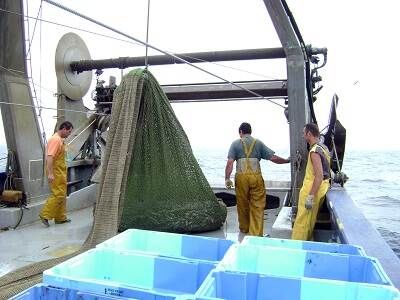Spain´s implementation to control trawlers in the Mediterranean “does not comply with EU regulations”
Oceana reports “one year after the adoption of the multiannual plan for demersal fisheries in the western Mediterranean, Spain still does not apply any solvent or responsible measure to alleviate the crisis in the Mare Nostrum”.

According to the press release issued by the NGO, the new Spanish regulation “condemns the hake, as it allows the exploitation of juveniles to continue, and includes closures that already existed in previous rules”. Oceana will ask the European Commission to reject the Spanish regulation and apply the legal minimums of the Plan according to the scientific information available.
Some background
The European Parliament and Council have adopted a new multiannual plan for the western Mediterranean fisheries exploiting several stocks of fish and crustaceans living close to the sea bottom (i.e. 'demersal fisheries'). Most of these stocks have long been overfished and are now in an alarming state. The new plan aims to reverse this trend and ensure that fishing activities are environmentally sustainable, and capable of securing economic and social benefits. It concerns fishing fleets from Italy (50% of total vessels), Spain (39%) and France (11%), totaling almost 10 900 vessels. The new regulation introduces a fishing-effort regime for all trawlers operating in the region, under which the Council will set each year, on the basis of scientific advice, the maximum number of fishing days for each fleet category by Member State.
National implementation of the EU Plan
After weeks of debate and clear opposition of the bottom trawler fleet, on May 20, the Spanish ministry of Agriculture, Fisheries and Food has published the national regulation on how the Plan will be implemented. For Oceana “one year after the adoption of the EU Plan, Spain still does not apply any solvent or responsible measure to alleviate the crisis in the Mediterranean”.
The main measure provided for in the Plan was “the adoption of a three-month closure to trawlers in the coastal strip to avoid the major problem of catching juveniles”. “It aims to end overfishing, in line with the CFP, and in particular to curb the high levels of hake overfishing, species fished at up to 15 times the sustainable level in some areas”. However, Oceana states, “Spain has chosen to repeal it and to choose an option which does not even meet the minimum legal requirements in Europe and would hardly represent a slight improvement, given the current situation of the fishing grounds”.
The NGO considers that “Minister Planas has succumbed to the pressure of the fishing sector”, since in the new national regulation “the closure areas initially planned to comply with the Plan have been considerably reduced”.
“This policy does not represent any progress and clearly responds to the short-term interest of a sector with no vision of the future”, Oceana’s Campaigns Director says, adding “this Spanish implementation does not meet the minimum legal requirements in Europe and is not the way to move towards an ecological transition model which integrates sustainable fishing”.
Source: industriaspesqueras.com